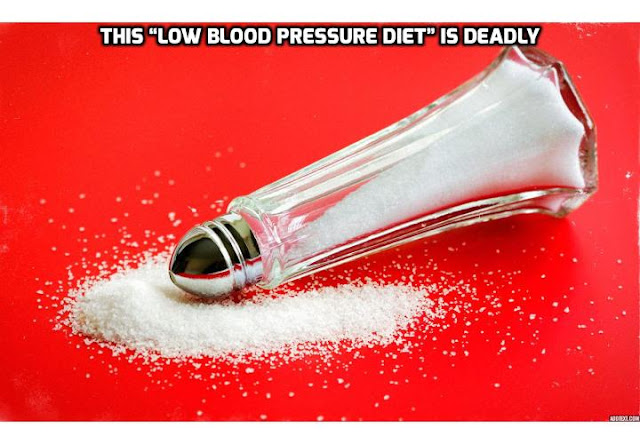 |
Click Here to Find Out How You Can Completely Clean Out the Plaque Build-Up in Your Arteries |
Can this Diet Help
You to Maintain Good Cholesterol
Levels?
The Best Diet for Cholesterol
Discovered
While
there are countless different diets, they can be roughly divided into two
types:
–
a continuous calorie restricted diet and
–
an intermittent fasting diet in which the dieter alternates between extremely
low food intake days and higher intake days.
So,
which one is better for lowering your cholesterol level?
A
new study, published in the journal Obesity, put these two types of diets to a
head-on test and found a clear winner.
The
Australian researchers recruited 88 women who were all overweight or obese,
with an average body-mass index of 32.3 kg/m2.
They
divided them into four groups.
–
Group one did not diet at
all, eating the same amount every day to meet 100 percent of their daily energy
needs.
–
Group two ate the same
amount every day, but ate only 70 percent of their daily energy needs. This is
what most of us mean by the word “dieting”.
–
Group three followed an
intermittent diet with an intake of 100 percent of their daily energy needs
during the eating 24 hours and took to complete starvation during the 24 hours.
–
Group four followed an
intermittent diet with an intake of 70 percent of their daily energy needs
during the eating 24 hours and took to complete starvation during the 24 hours
meant for fasting.
The
latter two ate normally every other day and then fasted for every other day.
The
dieters continued with their diets for eight weeks and the diets were carefully
matched to contain the same macronutrients: 35 percent fat, 15 percent protein,
and 50 percent carbohydrate.
Both
at the beginning of the study and after eight weeks, the scientists measured
their insulin sensitivity, their blood composition, their weight, and their
body composition.
Groups
two and three yielded approximately the same results and were healthier and
leaner than group one after the eight weeks. In fact, since group one did not
diet at all, we can forget about them from this point onwards.
Group
four was the healthiest and managed to lose the most weight.
More
importantly, they had lower total and LDL (bad) cholesterol scores, as well as lower free fatty
acids when compared to the other groups.
Groups
two and three lost approximately the same amount of weight, but the former
displayed slightly healthier cholesterol and other cardiovascular markers.
How to Maintain Good Cholesterol Levels to
Prevent Heart Attack?
When Good Cholesterol
Causes Heart Attack
In
the old days, doctors measured overall cholesterol and tried to lower that
number.
Nowadays,
you’re told to lower your LDL (bad) cholesterol and boost your HDL
(good) cholesterol.
They
are even making drugs to raise HDL.
But
this may actually not be the right recommendation at all.
According
to a new study presented at the European Society of Cardiology Congress 2018,
HDL could be a wolf in sheep’s clothing.
In
the study that has yet to be published, American researchers have examined the
association between HDL cholesterol and the likelihood of having a heart attack
and might lead to death.
They
used 5,965 people that had an average age of 63, most of whom had
cardiovascular disease or risk factors that could lead to it.
During
a four-year follow-up period, 13% of the subjects had a heart attack or died of
some other cardiovascular event.
Thus,
to discover the role of HDL, the researchers divided them into five groups,
from those with the lowest to highest HDL scores: less than 30 mg/dl, 31-40
mg/dl, 41-50 mg/dl, 51-60 mg/dl, and greater than 60 mg/dl.
Those
subjects with HDL levels between 41 and 60 mg/dl were the least likely to
suffer a heart attack or die from a cardiovascular event.
While
it was expected and unsurprising that people with lower HDL levels had a higher
risk of these events, the scientists found that people with HDL above 60 mg/dl
were 50% more likely than the 41-60 mg/dl groups to have heart attacks or to
die of cardiovascular-related causes.
In
other words, your HDL cholesterol should be neither too low nor too high.
The
scientists could not explain as to why this was the case, but they speculated
that such levels of HDL cholesterol high levels could actually be the symptom
of a dysfunctional cholesterol profile.
Scientists
have also previously found that there were different types of HDL cholesterol,
and that only some of these types were considered healthy.
Consequently,
it is possible that very high HDL levels consisted of unhealthy HDL types
rather than the healthy ones.
The
only reliable measurement was to look at the cholesterol plaque buildup in your
arteries, which was the plaque that blocked the blood flow and led to strokes
and heart attack.
Can this Candy Help You to Maintain Good
Cholesterol Levels?
To Lower Cholesterol,
Binge On This Candy
Eating
candy has seldom been associated with a lowering of cholesterol levels.
However,
a new study published in the latest British Journal of Nutrition has proven
that one candy is extremely effective to lower cholesterol.
And
this comes on top of other studies that further attests to this delicious candy
effectiveness in lowering blood pressure, improving type 2 diabetes, and helping with numerous other health issues.
Dark
chocolate is a sweet that is a particularly rich source of magnesium and this
new study has shown that magnesium can help you to maintain a healthy
cholesterol profile.
Chinese
researchers decided to study the effects of magnesium on cholesterol in
different groups of people, including those with type 2 diabetes, those who
were obese, and those who were relatively healthy.
They
used the information of 8,163 adults that was obtained from the China Health
and Nutrition Survey.
Blood
samples were taken throughout the study for the measuring of magnesium circulation,
and the subjects were divided into groups with low, medium, and high magnesium
counts.
They
found that those with the least magnesium in their blood streams had the
highest level of LDL cholesterol, something that was sometimes referred to as bad
cholesterol.
In
addition, with the exception of healthy HDL cholesterol, they also had the
highest amount of other fats present in their blood.
In
other words, the more magnesium present in their bodies, the lower their
harmful cholesterol scores.
Predictably,
those with type II diabetes and obesity had much higher levels of cholesterol
when compared to those that did not have these two conditions.
When
they considered the influence of magnesium on cholesterol in people with type 2
diabetes and obesity, they found that magnesium was unable to save diabetics
from high cholesterol.
This
was still effective in lowering the cholesterol of people who were obese.
And most importantly, to get your cholesterol under control, you must cut out this one ingredient out, one that you didn’t even know you were consuming…
This post is from the
Oxidized Cholesterol Strategy Program. It was created by Scott Davis. Because
he once suffered from high cholesterol, so much so that he even had a severe
heart attack. This is what essentially led him to finding healthier alternatives
to conventional medication. Oxidized
Cholesterol Strategy is a unique online program that provides you
with all the information you need to regain control of your cholesterol levels
and health, as a whole.
You
may also like:


